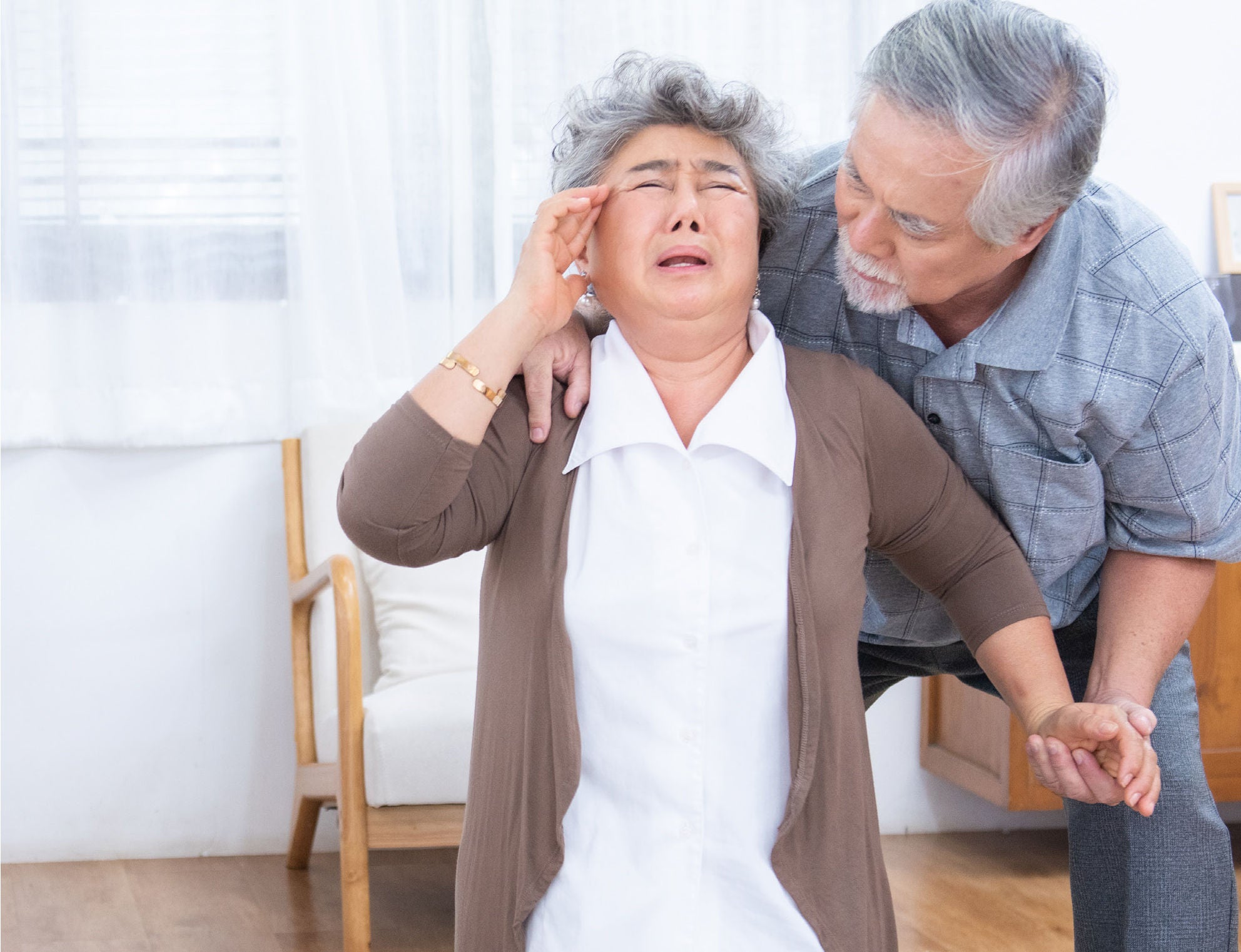
A bang to the head can leave no mark, but still cause serious damage to the brain. Dr Lim Jia Xu, Senior Resident, Neurosurgery, NNI, shares warning signs to look out for and why the elderly is at higher risk of complications.
A blow to the head can change your life in an instant.
Traumatic brain injury (TBI), or head injury, is common, particularly in young adults and the elderly, but the causes differ. Young adults usually suffer a TBI from a road traffic accident or a fall
from height, and it is one of the leading causes of death and disability in this group. However, in older people, falls are the top cause of head injuries.
Elderly patients often suffer from age-related diseases and take medications that can affect their vision, muscular strength, coordination, and thinking. This makes them prone to falls during normal daily activities, such as toileting, showering, or even when getting out of bed.
“But my grandmother seemed okay…”
A minor head injury can have serious consequences in the elderly because the brain shrinks as we age. This creates more space inside the skull for the brain to move when the head is hit. With more movement, there is an increased risk of damage to blood vessels, causing blood to gradually pool under the skull, a condition known as chronic subdural haematoma.
This ‘delayed’ bleeding from a mild TBI can occur weeks to months after the head injury and may require surgery. A head injury can happen at any time — know the signs of brain injury and when to seek medical help!
“If elderly loved ones hit their head, watch them carefully and call 995 if they show any signs of head injury, such as headaches, excessive sleepiness, walking difficulties, weakness of the limbs, or seizures."
— Dr Lim Jia Xu
This article was published in the National Neuroscience Institute's NeusLink magazine, which covers articles about NNI updates and brain, spine, muscle and nerve conditions in English and Chinese - to read more articles click here!
Check out another related article:
Get the Health Buddy App
© 2025 SingHealth Group. All Rights Reserved.













 Get it on Google Play
Get it on Google Play